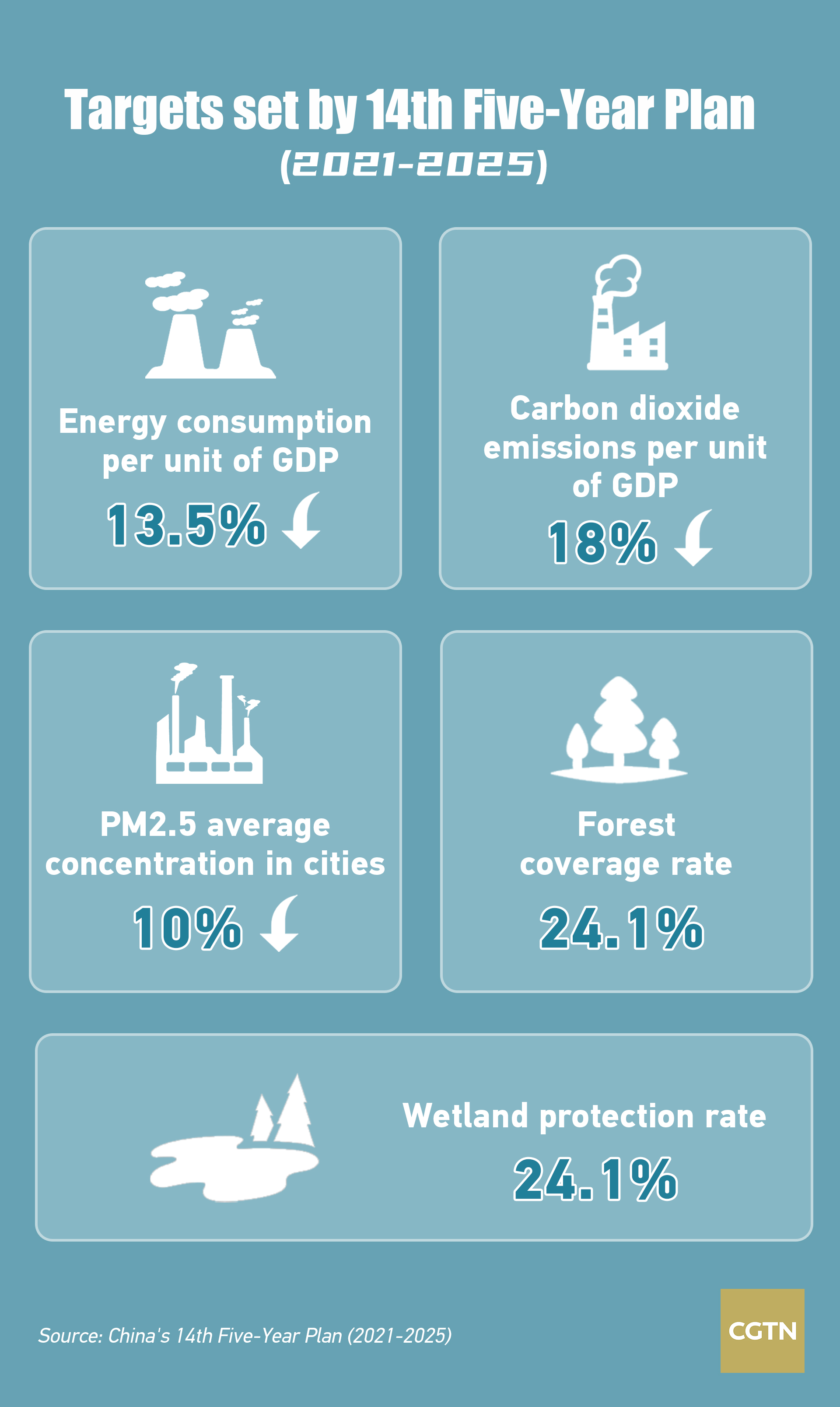Ensuring a balance between environmental protection and economic development is a challenge for the world, especially for China, a country which has undergone fast-paced development.
On July 1, China announced the realization of Xiaokang society, or "a moderately prosperous society in all respects," with its GDP soaring to about $15.7 trillion last year from 67.9 billion yuan in 1952.
Meanwhile, public satisfaction with the ecological environment reached 89.5 percent, an increase of 10.7 percentage points over 2017, according to a survey conducted by the National Bureau of Statistics in 2020.
How is the country completing the uneasy task step by step?
Comprehensive efforts towards a 'Beautiful China'
"We owe so much to the ecological environment. If we don't do solid green work from now on, we will pay a higher price in the future," said Chinese President Xi Jinping during his first inspection trip out of Beijing in December 2012, less than a month after he was elected general secretary of the Communist Party of China (CPC) Central Committee.
China has made tremendous progress in economic and social development over 30 years, but its previously highly successful growth model is no longer sustainable.
In 2012, China accounted for 11.5 percent of the global economy, but consumed 21.3 percent of global energy and its total emissions of sulfur dioxide and nitrogen oxide ranked first in the world.
The authorities took immediate steps to reverse the trend.
The report delivered at the 18th National Congress of the Communist Party of China included ecological development as a major task in the country's overall plan and proposed building a "Beautiful China" as a grand goal for ecological progress.
Two years later in 2014, China rolled out its harshest-ever environmental protection law and has strengthened inspections to fight air, water and soil pollution.
A national campaign to review local governments' environmental protection work started in late 2015 from northern China's Hebei Province and has covered 23 provincial regions. Over 6,000 officials were held accountable for negligence or malpractice in 2016.
In 2018, China, for the first time, incorporated ecological advancement into its Constitution.

The efforts have paid off. On December 6, 2017, Saihanba Afforestation Community in Hebei Province received the United Nations' highest environmental honor – the Champions of the Earth award for transforming degraded land into a lush paradise.
Over the past five years, China has made historic achievements in environmental development, said Minister of Ecology and Environment Huang Runqiu.
Between 2016 and 2020, the country significantly reduced its number of days with heavy air pollution, according to the ministry. The safety of drinking water was guaranteed. Black and odorous water bodies were generally eliminated in cities.
March forward with new tasks
China's steps won't stop anytime soon. A blueprint for the country's social and economic development over the next five to 15 years, adopted in March this year, demands the all-round green transformation of social and economic development and the construction of a Beautiful China.

The country has also announced that it will strive to peak carbon dioxide emissions by 2030 and achieve carbon neutrality by 2060, which means it will complete the world's largest reduction in carbon emission intensity, and realize carbon neutrality from carbon peaking in the shortest time in global history.
The task is extremely challenging, but China will deliver on its promise as measures and plans are already underway.
Between 2021 and 2025, the trading of carbon emissions, which has been piloted in over 20 industries in seven provinces and cities, is expected to see a wider range of participants, as more entities will be encouraged to join the carbon market.
The country is also planning to enact a special law on climate change as it speeds up formulation of top-level design and industry-specific policies to further clarify the roadmap toward carbon neutrality.
China is drawing up an action plan to peak carbon emissions by 2030 while working on specific plans for various industries and sectors including power, steel, petrochemicals and transportation, said Jin Xiandong, spokesperson for the National Development and Reform Commission.

